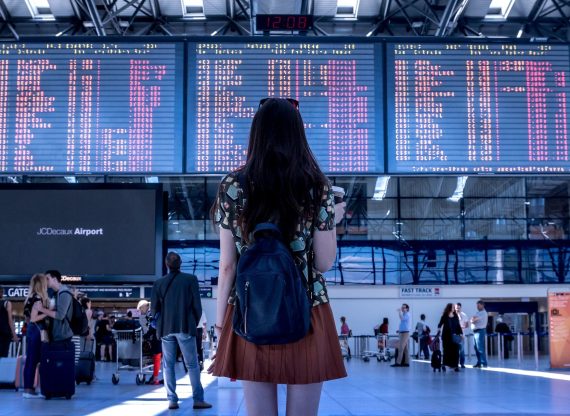For a Decentralized Vaccine Passport

After a few false starts, the vaccination campaign is finally in full swing. It seems that the supply is now sufficient to give everyone the hope of a first dose in the coming weeks and months. Everyone is awaiting the vaccine like a real liberation. But for this to truly be the case, we need to reflect on the introduction of a vaccine passport and on what form it could take. The avenues explored here are proof of vaccination for travellers entering Canada in order to reduce the constraints imposed on vaccinated people, combined with a decentralized, non-mandatory vaccine passport to facilitate the return to normal daily life.
These two avenues are gaining ground, in different forms. In Israel, the vaccination leader, a vaccine passport allows for a whole range of activities that are unthinkable in a red zone, like going to a restaurant. Some nonetheless wonder about the legitimacy of such a document, likely to leave those who haven’t yet had access to a vaccine—or who simply refuse to get the shot—out in the cold.
Yet the question needs to be considered from a different angle. Current restrictions on our individual freedoms are simply enormous. From the moment when they can be removed in a safe and non-binding manner, they must be removed. Moreover, it’s a safe bet that international travel without quarantine will not resume before the emergence of a vaccine passport. Do we really want to be deprived of travel in the name of dogmatic egalitarianism?
Indeed, Israel and Bahrain have recently agreed to mutually recognize each other’s vaccine passports. There’s no doubt that this is the first step toward an inevitable conclusion. After all, how many countries still currently require proof of vaccination against yellow fever? It would therefore be good if the presentation of a vaccine passport would exempt Canadian travellers returning home from certain measures such as the mandatory hotel quarantine.
Once it has been established that this kind of passport is desirable and that it is the least costly way to facilitate travel for those who are vaccinated, the details still need to be worked out, including for other sectors of the economy besides travel. Indeed, the crucial question to answer is who will issue it. This may seem of little consequence, but there are some real challenges. After all, the computerization of Canada’s provincial health care systems has not proceeded at a uniform pace, and the tools used do not always communicate with each other. The federal government is therefore not well placed to deliver a vaccine passport quickly. And considering the fiasco of its Phoenix project, we should hope and pray that the federal government doesn’t take on this important file.
As for Quebec’s provincial government, it is behind when it comes to digitizing patient files, not to mention the state of its health care system in general. It is hard to imagine that the government will be able to come up with a functional solution in a timely manner.
The good news is that numerous entrepreneurs have already taken it upon themselves to propose mobile apps to provide proof of immunization. In order to move quickly, and keep costs down, it would make sense to use these innovations. This decentralized model represents our best hope, all while respecting everyone’s individual freedom. Private businesses would be free to require proof of vaccination, or not, and consumers could choose one business rather than another based on the requirement in place.
To sum up, it seems like a good idea to facilitate travel for people with proof of vaccination. For the rest of the economy, we favour the emergence of a decentralized and non-mandatory vaccine passport. With summer just around the corner, we need to consider all the possible options in order to allow people to finally get on with their lives.
Miguel Ouellette is Director of Operations and Economist at the MEI, Maria Lily Shaw is an Economist at the MEI. They are the authors of “For a Decentralized Vaccine Passport” and the views reflected in this op-ed are their own.

